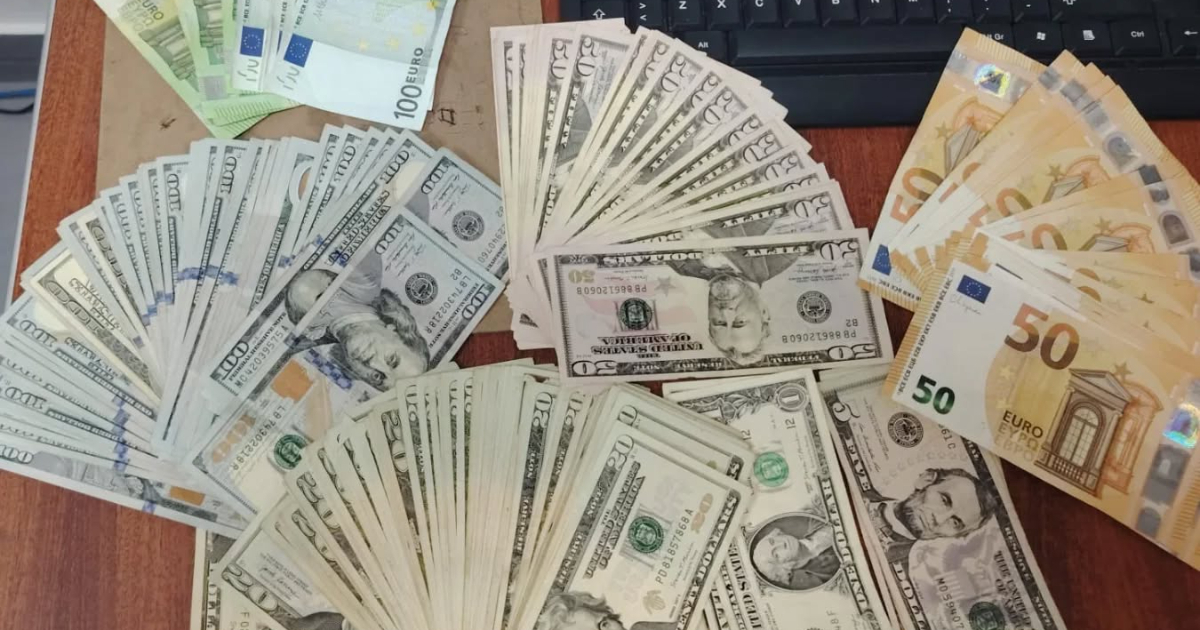
Related videos:
The National Customs Authority (ANA) of Panama confiscated over B/.10,300 (10,300 US dollars) in cash from a passenger who arrived at Panama Pacific Airport on a commercial flight from Havana, Cuba.
According to the authorities, who did not mention the traveler’s nationality, the passenger submitted their sworn declaration indicating that they were carrying only 9,900 dollars, but a more thorough inspection revealed otherwise.
According to Telemetro, during the baggage inspection, customs officials discovered an additional B/.8,321.00 hidden in a personal carrier, along with a sum of money in euros in his wallet, which converted to a value of B/.2,043.51.
This finding raised the total undeclared amount to over 10,300, a direct violation of Panamanian regulations regarding the declaration of cash.
The ANA emphasized the importance of correctly declaring cash upon entering the country, an essential measure to prevent money laundering and the illicit trafficking of currencies. Authorities have urged all travelers to comply with these regulations to avoid penalties.
The case highlights the stringent controls implemented at Panamanian airports and underscores the need for greater awareness among passengers regarding current regulations.
According to the laws of the Central American country, the entry of any amount of money is permitted, but there is an obligation to declare any amounts that total more than 10,000 dollars or its equivalent in other currencies (including: traveler's checks, bonds, or other documents). “This is solely for control purposes, and you must make the declaration even if you have previously deposited it in the airport bank.” In the case of Cuba, the government only allows you to take out 5,000 dollars.
Frequently Asked Questions about Customs Regulations in Panama and Money Smuggling
Why was the money seized from the passenger who arrived in Panama from Cuba?
The money was seized because the passenger did not accurately declare the total amount of cash they were carrying. The undisclosed amount exceeded 10,000 dollars, which constitutes a violation of Panamanian regulations regarding the declaration of cash. Authorities emphasize the importance of declaring amounts over this limit to prevent money laundering and the illicit trafficking of currencies.
How much money can you declare when entering Panama?
In Panama, the entry of any amount of money is allowed, but it is mandatory to declare amounts that exceed 10,000 dollars or their equivalent in other currencies. This includes traveler’s checks, bonds or other similar documents. The declaration is a necessary control to prevent illegal activities.
What consequences does a passenger face for not declaring money at customs?
The consequences may include the confiscation of undeclared money and possible fines or legal sanctions. In more serious cases, there could be charges related to money laundering or illegal currency trafficking, as occurred in a similar case where a Cuban citizen was sentenced for violating customs regulations in Panama.
How does the money declaration regulation compare between Cuba and Panama?
In Cuba, the limit for exporting or importing money is 5,000 dollars or its equivalent in other currencies, while in Panama, although there is no limit on the amount of money entering the country, it is mandatory to declare amounts exceeding 10,000 dollars. The differences in regulations reflect the controls that each country has in place to prevent the illegal trafficking of currency and money laundering.
Filed under: